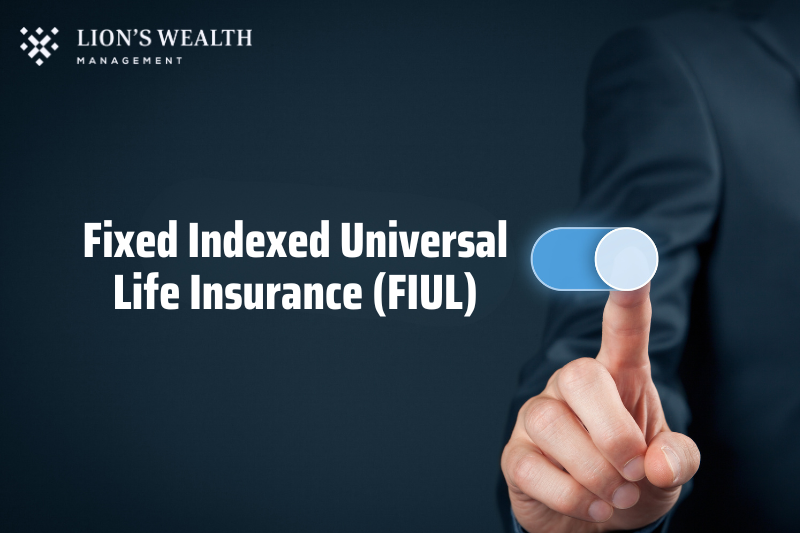All Categories
Featured
Table of Contents
In exchange for gaining a restricted quantity of the index's development, the IUL will certainly never ever obtain much less than 0 percent rate of interest. Also if the S&P 500 declines 20 percent from one year to the next, your IUL will not shed any kind of money value as an outcome of the marketplace's losses.

Think of the rate of interest worsening on an item with that kind of power. Offered all of this information, isn't it possible that indexed universal life is a product that would certainly enable Americans to acquire term and invest the rest?
A true financial investment is a safeties item that is subject to market losses. You are never ever subject to market losses with IUL merely since you are never ever subject to market gains either. With IUL, you are not spent in the market, however just making interest based upon the performance of the market.
Returns can grow as long as you proceed to make payments or keep an equilibrium.
Iul Medical Abbreviation
Unlike universal life insurance, indexed global life insurance's money worth gains passion based on the efficiency of indexed stock markets and bonds, such as S&P and Nasdaq., mentions an indexed universal life plan is like an indexed annuity that really feels like universal life.

Universal life insurance coverage was created in the 1980s when rate of interest rates were high. Like various other kinds of long-term life insurance coverage, this plan has a money worth.
Indexed global life plans provide a minimal guaranteed rates of interest, also called a rate of interest crediting flooring, which lessens market losses. For instance, claim your money value sheds 8%. Several business supply a flooring of 0%, suggesting you won't shed 8% of your financial investment in this situation (ffiul insurance). Know that your cash worth can decline despite having a flooring as a result of costs and various other expenses.
Nationwide Universal Life Insurance
It's additionally best for those happy to presume extra risk for higher returns. A IUL is an irreversible life insurance policy that borrows from the buildings of a global life insurance plan. Like universal life, it allows flexibility in your survivor benefit and costs payments. Unlike universal life, your cash worth grows based upon the efficiency of market indexes such as the S&P 500 or Nasdaq.
Her work has actually been released in AARP, CNN Emphasized, Forbes, Lot Of Money, PolicyGenius, and U.S. News & World Record. ExperienceAlani has examined life insurance policy and pet dog insurance business and has composed countless explainers on traveling insurance policy, credit rating, debt, and home insurance. She is passionate concerning demystifying the intricacies of insurance policy and other individual financing subjects to make sure that viewers have the information they require to make the best cash choices.

Paying just the Age 90 No-Lapse Premiums will certainly assure the survivor benefit to the insured's attained age 90 yet will certainly not ensure cash worth accumulation. If your customer discontinues paying the no-lapse guarantee premiums, the no-lapse function will terminate prior to the guaranteed duration. If this happens, additional premiums in an amount equal to the shortfall can be paid to bring the no-lapse function back active.
I lately had a life insurance salesman turn up in the remarks thread of a blog post I published years ago about not mixing insurance policy and investing. He thought Indexed Universal Life Insurance Policy (IUL) was the finest point given that sliced bread. On behalf of his placement, he posted a web link to a post created in 2012 by Insurance Agent Allen Koreis in 2012, entitled "16 Reasons Accountants Prefer Indexed Universal Life Insurance" [web link no longer offered]
Universal Life Policy Vs Term
However, initially a short explanation of Indexed Universal Life Insurance Policy. The attraction of IUL is evident. The facility is that you (virtually) get the returns of the equity market, with no risk of losing cash. Now, before you diminish your chair chuckling at the absurdity of that statement, you require to recognize they make a really persuading disagreement, a minimum of till you consider the details and recognize you don't get anywhere near the returns of the equity market, and you're paying much way too much for the assurances you're obtaining.

If the market drops, you get the guaranteed return, normally something between 0 and 3%. Obviously, given that it's an insurance plan, there are also the normal prices of insurance policy, payments, and abandonment costs to pay. The information, and the factors that returns are so dreadful when mixing insurance and investing in this particular way, boil down to essentially three points: They just pay you for the return of the index, and not the returns.
Death Benefit Option 1
Your maximum return is capped. If you cap is 10%, and the return of the S&P 500 index fund is 30% (like last year), you obtain 10%, not 30%. Some policies only give a specific percentage of the change in the index, claim 80%. If the Index Fund goes up 12%, and 2% of that is returns, the modification in the index is 10%.
Include all these impacts together, and you'll discover that long-lasting returns on index universal life are pretty darn near those for whole life insurance policy, favorable, however low. Yes, these plans assure that the money worth (not the cash that mosts likely to the costs of insurance coverage, naturally) will not lose cash, yet there is no warranty it will keep up with rising cost of living, a lot less expand at the price you need it to grow at in order to provide for your retirement.
Koreis's 16 reasons: An indexed universal life plan account value can never shed money because of a down market. Indexed universal life insurance policy assurances your account worth, securing gains from each year, called a yearly reset. That's real, yet just in small returns. Ask yourself what you require to pay in order to have a guarantee of no small losses.
In investing, you earn money to take risk. If you do not intend to take much danger, do not anticipate high returns. IUL account worths grow tax-deferred like a certified plan (individual retirement account and 401(k)); mutual funds do not unless they are held within a certified strategy. Basically, this means that your account worth take advantage of triple compounding: You earn passion on your principal, you make rate of interest on your passion and you gain rate of interest accurate you would or else have paid in taxes on the rate of interest.
Iul Reviews
Certified plans are a far better selection than non-qualified plans, they still have problems not provide with an IUL. Financial investment options are normally limited to shared funds where your account worth goes through wild volatility from direct exposure to market danger. There is a large distinction in between a tax-deferred pension and an IUL, yet Mr.
You buy one with pre-tax bucks, saving money on this year's tax obligation bill at your minimal tax rate (and will frequently be able to withdraw your money at a lower reliable price later) while you spend in the various other with after-tax bucks and will be compelled to pay interest to obtain your own money if you do not desire to give up the plan.
He tosses in the classic IUL sales person scare strategy of "wild volatility." If you despise volatility, there are much better methods to lower it than by buying an IUL, like diversification, bonds or low-beta supplies. There are no constraints on the amount that may be added each year to an IUL.

That's reassuring. Let's consider this for a second. Why would the federal government put restrictions on how much you can put right into pension? Possibly, simply possibly, it's due to the fact that they're such a lot that the government does not want you to conserve way too much on tax obligations. Nah, that couldn't be it.
Latest Posts
Adjustable Life Insurance Vs Universal Life Insurance
Iu L
Universal Retirement Protection